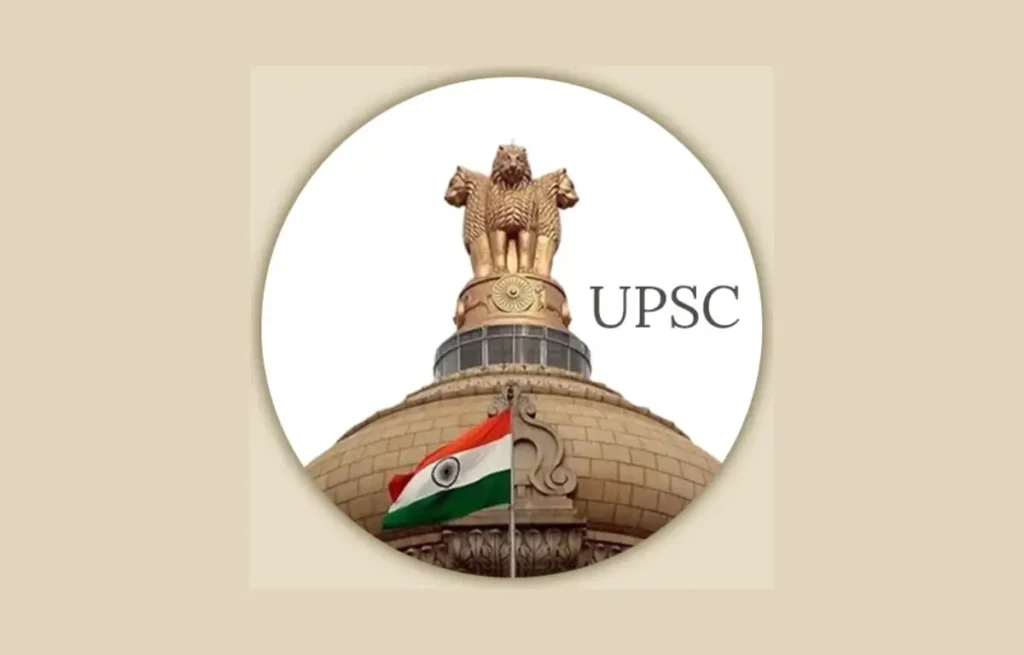Cracking the UPSC Civil Services Examination (CSE) is one of the most challenging yet prestigious goals in India. Thousands of aspirants dream of becoming an IAS, IPS, or IFS officer, but only a few succeed. With a smart strategy, right guidance, and consistent effort, you can turn this dream into reality.

In this comprehensive guide, we’ll break down how to crack UPSC with a step-by-step civil services strategy that covers everything from syllabus analysis to answer writing, booklist, revision, and mock tests
1. Understanding the UPSC Civil Services Exam
The UPSC CSE is conducted in three stages:
- Prelims: Objective-type screening test.
- Mains: Descriptive written examination.
- Interview: Personality test.
The goal is not just to memorize facts but to evaluate your analytical thinking, depth of knowledge, and suitability for public service.
📘 Official Website: UPSC.gov.in
2. Eligibility & Age Limit
Before you begin preparation, ensure you meet the eligibility criteria:
| Criteria | Details |
|---|---|
| Nationality | Indian |
| Age Limit (General) | 21 to 32 years |
| Educational Qualification | Graduate degree from any recognized university |
| Attempts | General – 6, OBC – 9, SC/ST – Unlimited |
For detailed rules: UPSC Notification
3. Step-by-Step Strategy to Crack UPSC
Step 1: Understand the Syllabus
- Download and read the UPSC syllabus multiple times.
- Analyze what topics overlap between Prelims and Mains.
- UPSC Syllabus: Download Here (PDF)
Step 2: Start with NCERTs
Begin with Class 6–12 NCERT textbooks, especially for History, Geography, Economics, and Polity.
Step 3: Build a Solid Foundation
Once NCERTs are complete, refer to standard reference books like Laxmikant, Spectrum, etc.
Step 4: Focus on Prelims and Mains Together
Don’t separate your preparation into two parts. Instead, study with an integrated approach.
Step 5: Daily Newspaper Reading
Read ‘The Hindu’ or ‘Indian Express’ regularly and make notes for Mains.
Step 6: Regular Revision
Follow a weekly, monthly, and subject-wise revision plan to retain what you study.
Step 7: Practice Answer Writing
Start writing 1–2 answers daily from Mains GS papers.
Step 8: Attempt Mock Tests
Take full-length mock tests for both Prelims and Mains.
Step 9: Analyze Performance
After every mock, review your mistakes, revise concepts, and track your progress.
4. Recommended Booklist for Prelims & Mains
| Subject | Book |
|---|---|
| Polity | Indian Polity by M. Laxmikanth |
| History | Spectrum for Modern India |
| Geography | NCERTs + Certificate Physical Geography – G.C. Leong |
| Economy | Indian Economy by Nitin Singhania / Sriram IAS |
| Environment | Shankar IAS Environment |
| Current Affairs | Monthly compilations by VisionIAS, InsightsIAS, or ForumIAS |
| Science | NCERTs + Current Affairs |
5. Importance of NCERTs and How to Cover Them
NCERTs are crucial for understanding concepts from scratch. Follow this order:
- History: Class 6–12
- Geography: Class 6–12
- Polity: Class 9–12
- Economics: Class 9–12
- Science: Class 6–10
Make short notes and highlight important points while reading.
6. Current Affairs: How and What to Read
Best Sources:
- Newspapers: The Hindu / Indian Express
- Government Websites: PIB, PRS India, India Year Book
- Monthly Magazines: Vision IAS, Insights IAS, ForumIAS
✅ Tip: Focus on Government schemes, International Relations, Environment, Supreme Court rulings, Economic Survey, and Budget.
7. Effective Time Management
Use the Pomodoro Technique or create a Weekly Planner to divide your study hours.
Sample Daily Routine:
- 3 hrs: Static Subjects
- 2 hrs: Current Affairs
- 1 hr: Revision
- 1 hr: Answer Writing or Tests
Set small, achievable goals. Use apps like Notion, Evernote, or Trello to track progress.
8. Notes Making Techniques
Digital vs Handwritten Notes
- Use handwritten notes for better memory.
- Digital notes (OneNote, Notion) for dynamic topics like Current Affairs.
Tips:
- Keep notes concise (1–2 pages per topic).
- Use flowcharts and diagrams.
- Revise notes weekly.
9. How to Write UPSC Mains Answers
A good answer has:
- Introduction (Definition or background)
- Body (Use of headings, subheadings, bullet points, examples)
- Conclusion (Suggest reforms or way forward)
Practice With PYQs: Analyze previous year Mains questions from UPSC official site.
10. Essay Paper: Tips to Score High
UPSC gives two essays — choose topics wisely.
Strategy:
- Practice 1 essay/week.
- Follow a clear structure: Introduction → Body → Conclusion.
- Use examples, quotes, and data.
🔗 Best Essay Resources by IAS Toppers
11. UPSC Optional Subject Strategy
Choose based on:
- Interest and academic background
- Availability of resources
- Past success rate
Popular Optionals: PSIR, Anthropology, Geography, Sociology, History, Literature.
Preparation Tips:
- Complete one standard book.
- Practice answer writing.
- Refer to topper answer sheets on ForumIAS.
12. UPSC Interview/Personality Test Preparation
Final stage of the exam. Not a test of knowledge, but of personality.
Tips:
- Revise DAF (Detailed Application Form)
- Prepare on hobbies, service preference, and home state
- Mock Interviews (Vision IAS, Vajiram, KSG)
🧠 Be honest, calm, and respectful.
13. Online Resources and Apps
Here are some free and paid resources for aspirants:
YouTube Channels:
- Mrunal Patel – Economy, Budget, Geography
- Unacademy – Daily classes
- Study IQ – Daily current affairs
- Drishti IAS – Hindi + English content
Websites:
Apps:
- Vision IAS App
- Civilsdaily
- Evernote / Notion (for notes)
- PIB, PRS India (official apps)
14. Common Mistakes to Avoid
- Ignoring the syllabus and jumping into random books
- Not analyzing previous year questions
- Over-relying on coaching notes
- Not practicing answer writing
- Delaying mock tests
- Inconsistency and burnout
🛑 UPSC is a marathon, not a sprint. Stay balanced and consistent.
15. Final Words of Motivation
The UPSC journey is not just about becoming an officer—it’s about building discipline, analytical thinking, and a deeper understanding of society. Many aspirants crack the exam on their second or third attempt. What makes them succeed is resilience, self-awareness, and a refined strategy.
“Success is no accident. It is hard work, perseverance, learning, studying, and most of all, love for what you are doing.” – Pelé
Believe in the process, track your growth, and never give up.
📌 FAQs on Cracking UPSC
Q1. Can I crack UPSC without coaching?
Yes, many toppers have done it with self-study and online resources.
Q2. Is one year enough for UPSC preparation?
Yes, with a focused strategy and full-time commitment.
Q3. How many hours should I study?
6–8 hours daily is ideal, but consistency matters more than quantity.
Q4. Which newspaper is best for UPSC?
The Hindu or Indian Express for daily analysis.
🔗 External Links for Further Reading
- UPSC Official Syllabus PDF
- Mrunal’s UPSC Economy Lectures
- ForumIAS Mains Marathon
- Vision IAS Resources
- PIB Official Website
- PRS Legislative Research
🎯 Final Takeaway
UPSC Civil Services Exam is tough, but not unbeatable. With clarity of purpose, strategic planning, and a passion to serve the nation, you can crack it. Remember: it’s not about who studies the most, but who studies smartly and consistently.
Stay focused. Stay motivated. Your UPSC dream is possible.



